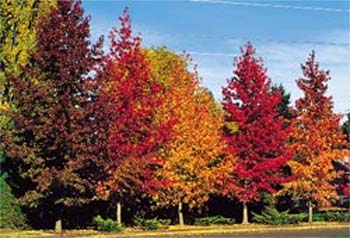Landscaping that is well designed and maintained not only adds beauty to your home but greatly increases it’s value. Just ask any real estate salesmen about the importance of curb appeal! It has been estimated that landscaping adds 15-20 percent to the value of your home. This is actually recoverable value too, not just a money pit such as hot tubs or pools.
We continually talk about the importance of maintaining your lawn and garden areas with our customers. Unfortunately, it is all too easy to overlook the exterior environment of your home. Even with proper care, landscape areas can become shabby over time. They also can become dated just like the lava lights and green linoleum of the fifties and early sixties.
Like your house, sooner or later you are going to have to renovate your landscape. While most of us can handle the routine garden chores, few homeowners are up to the task of a complete garden make over, especially with today’s wide choice of hardscape designs and installations. How many of us have the expertise to understand, let alone comply, with today’s many zoning laws, building codes, and permit requirements.
This is where the professional landscape contractor comes in. The contractor knows the laws, specifications, material sources, and has the where with all to carry the project through to completion and in a timely manner. He has the ability to work with you and the architect to produce a finished landscape that will add years of beauty and value to your home. Choosing the right contractor thus will determine the success or failure of your landscape installation.
Unfortunately, as a lawn maintenance professional, we often see what happens when a bad choice is made. Every year we get calls for help with problems arising from bad materials, poor workmanship, or a combination of both. This can run from simply reseeding a lawn planted too late in the season to repairing a retaining wall that fell over after the first heavy rain. Without fail, at some point in our restoration, the customer will ask us what they should have done differently.
The first step is to have a plan, be it a simple sketch or a complete architectural drawing. Next determine the scope of the project and what services you expect from the contractor such as installation of plant material, decks and patio, retaining walls, irrigation systems, and lighting. A good contractor should be able to handle all of this for you.
Thoroughly investigate the company. Contact some of your neighbors to see if they have used or heard of him. Check to see how long he has been in business in your community. Make sure to ask for recent references and check these out, visit the jobs and talk with his customers. We freely encourage potential customers to do this, even making arrangements for them, if they desire. We consider that our best advertising comes from past satisfied customers.
While many states require licensing, care must be taken in taking this at face value. Many times a license just means they are good at taking tests. Also, certification by a local or national trade organization may mean only that they pay dues to be able to use that groups logo. By itself, certification or licensing can be misleading.
For you the homeowner, the contractor’s insurance coverage should be a big concern. Landscaping work requires both liability and worker’s compensation insurance. You should require written proof of insurance from the contactor’s insurance carrier. Insurance companies will readily provide this information.
Check out what levels of expertise and education the employees have. Of course, I would not be writing this today if my customers had just based their decision on my horticultural education as my background is in Business Management and Accounting. Here again you need to look at the total package.
Ask how long the employees have been working with them. We encourage potential customers to talk with our people. Not only does the customer have to feel comfortable with the contractor but also the contractor with the customer. We make it a point to walk away from jobs where it just did not feel right.
Be sure to ask about what guarantees the landscaper will stand behind . Do they guarantee the plant material? Will the hardscape items, both materials and labor be covered at no cost to the homeowner? Make sure you know how long the contractor will stand behind his work.
What about the guy just starting out? I am still surprised that so many people gave me a chance with my old scruffy Chevy Blazer and snowmobile trailer. I was enthusiastic, dependable, really love the work, and fortunately many people realized that. I always wanted to do a good job, sure I had to make a living but above all else I wanted to please the customer.
If you find someone with excellent references, good looking projects, who is enthusiastic about the work, and that you feel comfortable with, you just may have a good prospect. The main thing is to take the time to do your homework!
Tips: Selecting a Landscape Contractor
Here is a checklist for selecting a landscape contractor:
- Ask and check references on similar jobs completed in your community.
- Request a copy of liability and worker compensation certificates.
- Find out if landscaper doing all the work or will he be subcontracting.
- Determine who is responsible for the design work.
- Find out who is responsible for permits, inspections, and code issues.
- Make sure the contractor has the personnel and equipment to do the job.
- Make sure who is responsible for clean up and the overall appearance of the finished job and will the clean up happen.
- Understand the time frame, when will the project start and finish.
- Make sure you understand the companies payment terms.
- Obtain a written warranty exactly what is covered.
- Ask the contractor about professional memberships or certification .
- Find out about the contractor office, voice mail or answering service.
- Determine how long it takes for the contractor to return calls.
- If you wish to work on some of these projects yourself make sure your contractor is agreeable to this.
- Do not base your decision solely on the lowest bid or because one landscape plan includes more plants than another does.
- Make sure you understand how change orders and extra costs are handled.



